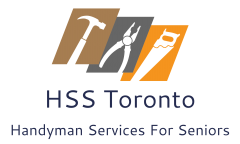Paying for senior care can be expensive and often there is little guidance out there. We came across this article from an organization called Paying for Senior Care and we adapted it to our Canadian experience. Some good advice in general!
1) Independent Caregivers vs. Home Care Agencies
Families may achieve significant savings by using independent caregivers instead of caregivers retained through home care agencies. Independent caregivers are typically 20% – 30% less expensive than agency provided resources. However, there are pros & cons to using independent caregivers and therefore this approach may not be appropriate for all families. Agencies perform background checks on their employees, are bonded and provide substitutes when the home care aide is unable to work on short notice. If you are going to hire yourself, get references and do as many checks as possible!
2) Use Virtual Caregivers
Although it is counter-intuitive that care can be provided over the Internet, the reality is that many hours of home care are provided simply to offer companionship to elderly individuals isolated in their homes. Online caregiving achieves that same goal at a fraction of the cost of hourly in-home care. No computer skills required.
3) Make Home Modifications to Reduce Home Care Needs
There are a few grants and loans available in Ontario for assistance to low income, elderly individuals to make home modifications which will make their homes safer and more accessible. The CCAC (Community Care Access Centre) will also do a check in the home to look for areas that might be risky or need upgrading. Modifications to stairs, bedrooms and bathrooms can diminish, delay or eliminate all together the need for home care aides.
4) Internet-Based Home Monitoring to Lower Home Care Hours
Sometimes
families use home care aides to monitor their elderly loved ones at
home from their work location. It may not be necessary to have a home
care aide for 6 or 8 hours / day if they are only providing direct
assistance for part of that time.
Monitoring a loved one using
an Internet based home monitoring system can do that same job at a
lesser cost. Home monitoring systems use sensors and cameras to relay
videos and send alerts over the Internet enabling a family member to
monitor their loved one remotely from their place of work on the
computer or from the road on their mobile device.
5) Meal Preparation / Meal Delivery Services
Many families loved ones require assistance with the preparation of meals, be that with shopping and planning for meals or in the heating and serving of meals for consumption. Services such as Meals on Wheels (MOW) offer subsidized meals that may cost less than it would to prepare meals for oneself and certainly cost less and are more nutritious than purchasing frozen meals.
Alternatively, if paying for home care, one might ask a caregiver to prepare, label and refrigerate meals in advance for times when the care recipient is alone. Caregivers sometimes have downtime when looking after an elderly person and can perform double duty.
6) Lower Other Household Costs
Heating and / or cooling a house can be a major expense for elderly individuals living at home. Often times, they live in older homes which are not the most cost effective to maintain at a comfortable living temperature. Get a maintenance check done on a yearly basis which can results in thousands of dollars of savings in heat, air conditioning, etc. as well as putting off major expenses by doing minor fixes.
